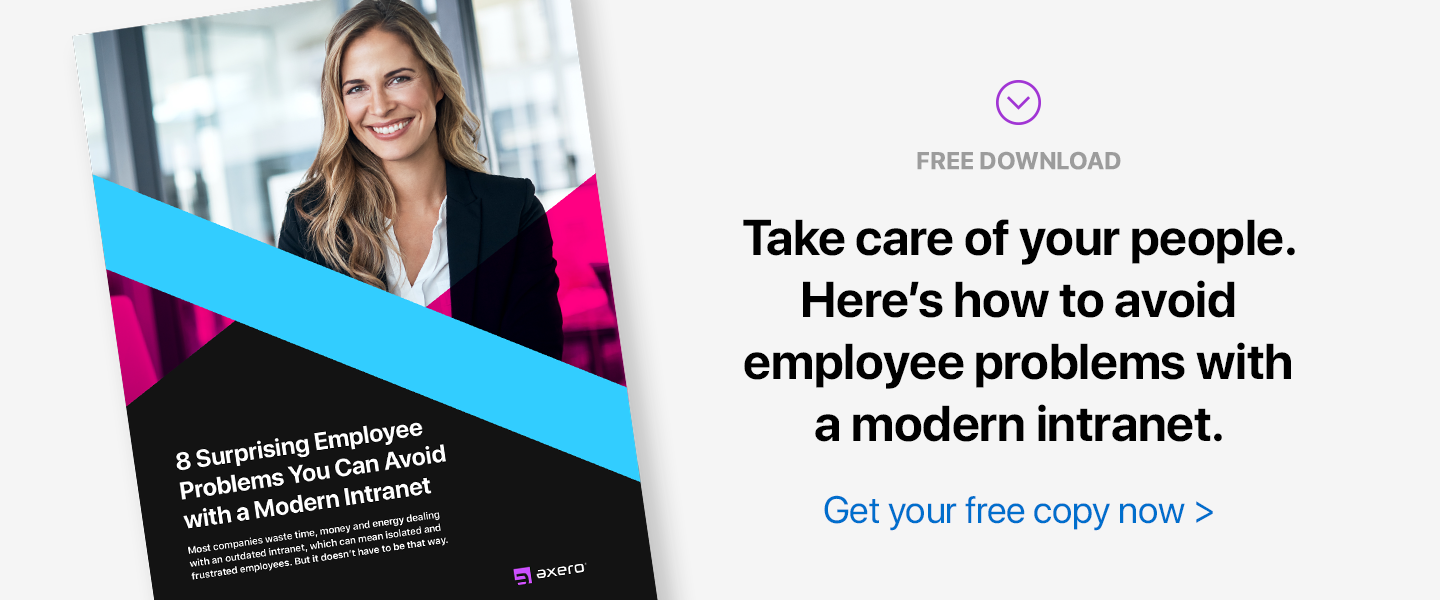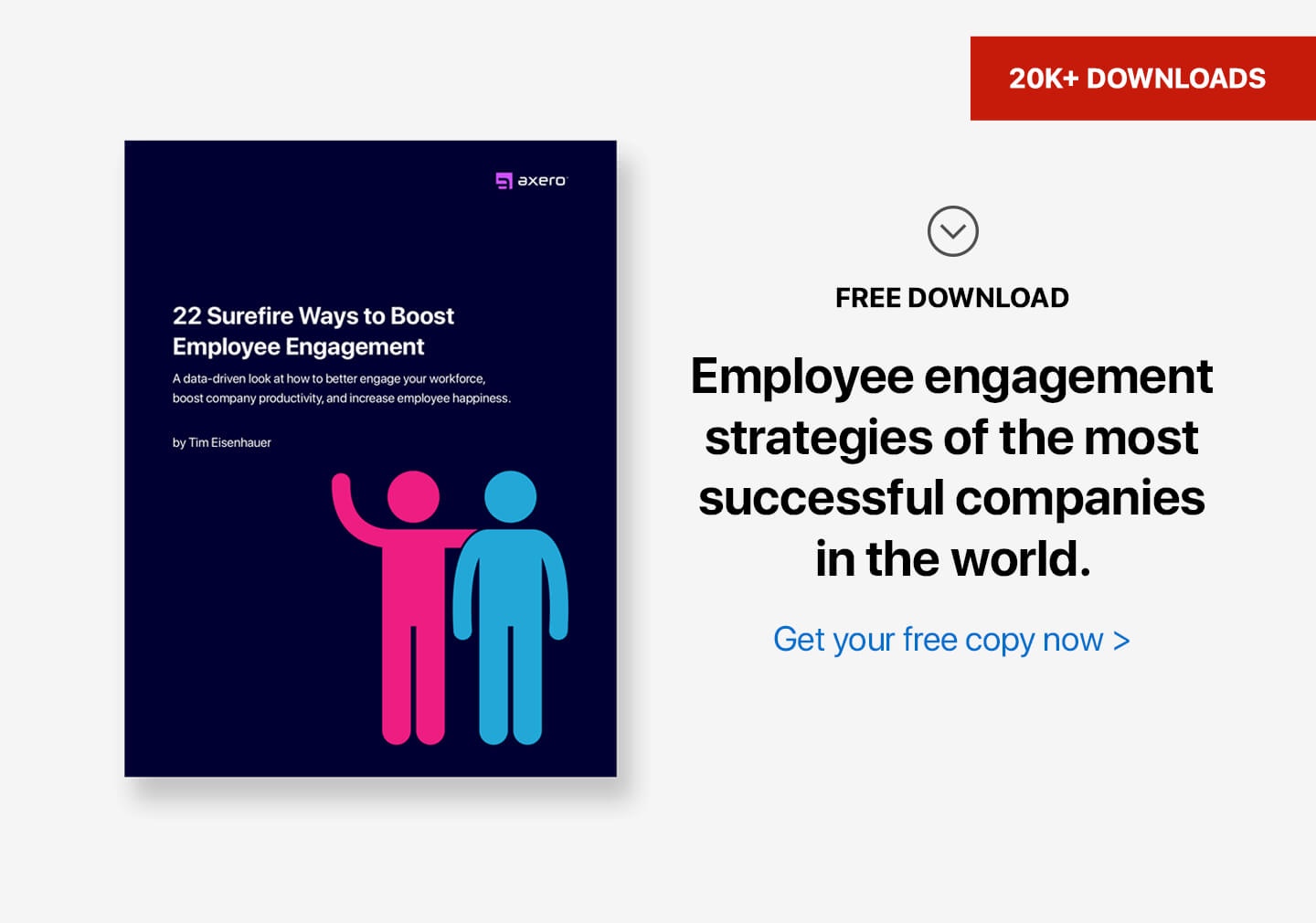Blending the ages—Millennials vs. Boomers
— CEO, President
In 2015, Millennials surpassed Generation X as the largest group of working adults in the US. Pew Research defines Millennials as the generation born between 1981 and 1996. They now make up more than one-third of the U.S. labor force.
What does this mean to employers? Is generational gap a real workplace issue or a made up one? Are Millennials living up to all the hype?
Here are six Millennial stereotypes and how they stand up to social science (and my own humble observations).
“Millennials are job-hoppers”
We were told that baby boomers wanted job security. The following generation, my generation, was labeled X—because we didn’t know what we wanted. Next came the Millennials who wanted to live in their parents’ basement and search for their life’s true calling at the rate of one job per week…
True or false?
Well, according to various stats, Millennials are prone to switching jobs with or without a reason. For example,
52% of Millennials viewed the concept of employee loyalty as being overrated (Red Brick)
50% of Millennials would consider another job opportunity even if they weren’t looking to leave (IBM)
68% of Millennials say the longest they would stay at a job they like is at least three years (Qualtrics)
58% of Millennials reported that they intended to stay in their current role for fewer than three years (Red Brick)
Compared to Boomers and Xers, Millennials are dead last in employee loyalty:
Baby Boomers are most likely to be satisfied in their current role (48%) and least likely to consider leaving (77%) (Hays)
66% of older employees say they are “highly” committed (ReportLinker)
41% of Gen X are happy in their role and one-third say they are highly likely to consider leaving their current role (Hays)
40% of Millennials say they are “somewhat” committed to their employer (ReportLinker)
28% of workers aged 18-35 say they can see themselves staying on for at least another two years (Comparably)
41% of Millennials expect to be in their current job for two years or less, compared to 17% of Gen X and 10% of Boomers (Job Applicator Center)
51% of Millennials are planning to leave their company in the next two years, compared to 37% of Gen X and 25% of Boomers (Lightspeed)
24% of workers over 35 say they can see themselves leaving their job within a year vs. 32% of Millennials (Comparably)
Millennials are 50% more likely to relocate and 16% more likely to switch industries for a new job than non-Millennials (LinkedIn)
Finally, Millennials are leading the pack of employees who are actively looking to quit their job:
19% of Millennials and 8% of Boomers are looking to exit their company (IBM)
54% of those younger than 35 say it’s a good time to find a quality job versus 48% of those aged 35 and older (Gallup)
While true overall, these trends don’t impact every employer equally. For example, half of Axero employees are Millennials. But we’ve yet to have one quit. Lucky break or…? Can these purported Millennial generation traits explain it?
“Millennials are entrepreneurial”
The following research suggests that millennials are more likely than their elders to freelance or start a business. Interestingly, they’re also more loyal than the older generations to employers who put them in leadership roles.
61% of Millennials say there is more job security in owning their own business than in working for someone else; 64% of Boomers think there is greater job security in working for someone else than in owning their own business (America’s Small Business Development Centers)
38% of Millennials aged 18-35 say they plan to start their own company in the next five years (Comparably)
54% of Millennials would quit their job and start a business in the next six months if they had the tools and resources needed, compared to 41% of all adults (America’s Small Business Development Centers)
67% of Millennials who work at independent insurance agencies have been in the industry for three years or longer and plan to stay in the industry for as long as possible (Vertafore)
82% of Millennials who work at independent insurance agencies are encouraging their friends and family to also get into the line of work (Vertafore)
44% of Millennial leaders say they intend to stay at their same company for more than 15 years; 29% of non-Millennial leaders said the same thing (The Conference Board)
Does this mean you’ll lose your ambitious and entrepreneurial youngsters to Kickstarter and Elance? Maybe. But the truth is… it’s still rough out there. While working for oneself might be a distant goal, most won’t say no to a steady paycheck. At least not until they’ve paid off their student loans—at which point they’ll likely be saddled with more consumer debt (and maybe a pre-existing health condition or two). So, not to worry, plenty of Millennials are searching for a job just like the one your company needs to fill.
Keeping them happy and productive is another story. This research explains what Millennials think is wrong with their current work arrangements:
Millennials top three work-related fears: getting stuck with no development opportunities, not being able to realize their career goals, and not finding a job that matches their personality (Universum)
From an employee’s perspective, a boring dead-end job where you pretend to be someone you’re not, leaves you with few enticing possibilities. You could quit and start your own business. Or you could quit and get another job and then quit and start your own business. Hence all the ideas about being one’s own boss.
However, as a manager or employer, you have some options. See where you can give your young employees the freedom they crave. Sales, marketing, customer service, product development, and many other functions—all require a sense of ownership and original thinking. Can’t fully trust them yet? Put them through training and watch them work towards their career goals and learn something new. Two of their greatest fears relieved!
Whether the job matches their personality is a function of many variables. If you hit it just right, as we strive to do at Axero, you might win your employees’ unconditional loyalty. Here’s a good place to start:
“Millennials value transparency”
More than half of the Millennials in this survey didn’t have a problem telling coworkers how much money they were making—a taboo subject for the vast majority of older workers.
28% of workers ages aged 18-35 said they were somewhat or very likely to share their salary with coworkers; only 12% of workers older than 40 said the same (Comparably)
27% of millennial workers ages aged 18-35 said their decision to discuss their salary with coworkers is dependent on the situation (Comparably)
Millennials are also more likely to admit that they lied. You could take it to mean that the older folks are more trustworthy. But the survey crew is not buying it. They seem to think that Millennials are simply more “honest about lying.”
65% of workers aged 18 to 35 say they “never” lie to their boss compared with 80% of workers aged 36 and up (Comparably)
How can you edge your company’s personality towards “transparent” and “authentic?” Instead of sweeping sensitive issues under the rug, try giving them a fair shake. For example, you don’t need to post everyone’s salaries on a bulletin board. But an honest one-on-one discussion of current and potential earnings between a supervisor and the employee could ease tensions. You could take it a step further and create a uniform pay policy, so that your employees know what they have to do to make more money.
By now you may be thinking, “They don’t want more work, Tim! They just want more money.”
Shall we look into that?
“Millennials are laid-back”
These surveys beg to differ. In fact, there’s plenty of research showing Millennials to be the most ambitious generation yet.
90% of millennials would choose to stay in a job for the next 10 years if they knew they’d get annual raises and upward career mobility (Qualtrics)
87% of millennials rate “professional or career growth and development opportunities” as important to them in a job; 69% of non-millennials agree (Gallup)
59% of millennials; 44% of Gen Xers and 41% of baby boomers say opportunities to learn and grow are extremely important to them when applying for a job (Gallup)
76% of millennials think professional development opportunities are one of the most important elements of company culture (Execu-Search)
55% of Millennials cite leadership opportunities as a key consideration (Impraise)
25% of Millennials say their top career goal is to “Make a positive impact on my organization” (compared to 21% of GenX and 23% of Baby Boomers) (IBM)
22% of millennial employees (ages 18-34) would consider taking a job with an organization that didn’t have a positive long-term outlook if it meant they’d be advancing their career in the short-term (LinkedIn)
16% of employees ages 55+ would consider taking a job with an organization that didn’t have a positive long-term outlook if it meant they’d be advancing their career in the short-term (LinkedIn)
Workers ages 18-35 rank career advancement opportunities (32%) and work life balance (34%) as most important to them at work (Comparably)
41% of workers older than age 35 said work-life balance was the most important feature (Comparably)
58% of Generation Zers said they would come into work on evenings and weekends in exchange for a bigger paycheck, compared with 45% of millennials, 40% of Gen X, and 33% of boomers (Monster)
Unbelievable! And they’re paying the price for it:
Generationally, millennials and Gen Z are the most stressed at work today, with 64% feeling stressed all or most of the time at work (Monster)
64% of Millennials say they’re overwhelmed at work compared with 59% of professionals age 35 to 54 and 35% of workers ages 55+ (Accountemps)
They are, however, ready to cut back on unnecessary stress:
50% of Millennials, 40% of Gen X and 35% of boomers say burnout is motivating them to consider changing jobs (Staples)
61% of Millennials say they would switch to a company with no performance reviews (Adobe)
By the way, if you think Millennials are unique in their rejection of performance reviews, you might be interested in this stat:
14% of employees strongly agree that the performance reviews they receive inspire them to improve (Gallup)
This leaves 86% of employees of all ages in doubt of whether their performance review achieves its main objective.
Here’s an unparalleled opportunity for a lasting bond with your employees. Instead of shifting your work stress onto them, help them (and yourself) to cut it down. This research pinpoints where you can make the biggest difference:
Top sources of workplace stress: Heavy workload/looming deadlines (33%), Unrealistic expectations of managers (22%), Attaining work-life balance (22%), Coworker conflicts (15%) (Accountemps)
I have covered all of these topics in previous posts and some in my book, Who the Hell Wants to Work for You. If you recognize some of these issues as your own, look here for alternatives:
- Psyched about Another Deadline? Neither Are Your Employees
- Balance is Missing?
- Are Performance Goals Motivating or Demoralizing My Employees? <
- How Patagonia Helped Axero Overcome PettinessSo, do your Millennials—and other employees—need help de-stressing? Or should they just grow up and deal with it? Survey says…
“Millennials are whiners?”
Student loans and other financial matters aside, Millennials appear to be taking things in stride.
67% of millennials say they are “somewhat happy” at work (Teem)
59% of Millennials would “often recommend their organization as a great place to work,” compared to 51% Gen X and 47% Boomers (Modern Survey)
27% of workers aged 18 to 25 feel negatively about their bosses, compared to 38% of workers aged 56 to 60 (Comparably)
67% of Millennials said their financial stress hinders their focus and productivity at work, compared to 32% of Baby Boomers (Bank of America)
61% of young employees have considered getting a second job to help pay off their student loans (American Student Assistance)
On average, it looks as though there’s enough good will in your younger employees to work things out. According to the following research, Millennials are not only open to positive action, they expect it.
“Millennials are social warriors”
In contrast to cynical Xers (me), and materialistic Boomers (my parents), Millennials (my brother and most employees at Axero) seem to bring an idealistic touch to the workplace.
44% of Millennials say they would be more loyal to their organization if their CEO took a public position on a hotly debated issue; 19% say they would be less loyal if their CEO spoke out (Weber Shandwick)
16% of Gen Xers and 18% of Boomers would be more loyal if their CEO spoke out about a hotly debated issue; 18% and 20%, respectively, would be less loyal (Weber Shandwick)
81% of millennials expect companies to publicly pledge to be good corporate citizens (Horizon Media)
63% of Millennials like their employers to contribute to social or ethical causes (Brookings)
Baby Boomers are 67% more interested in making more money than doing good (Atenga)
Among workers aged 18 to 35, 75% expect employers to take a stand on equal rights, climate change, immigration and constitutional rights (GlassdoorPress)
67% of 33 to 44 year olds and 49% of those 45 and older favor employer Involvement (GlassdoorPress)
90% of millennials said they consider a company’s sustainability important, compared to 84% of Gen X and 77% of Boomers (Lightspeed)
50% of those under the age of 40 felt that a company’s approach to sustainable business practices have influenced their decision about accepting a job (Bain & Co)
Politics is one place where the generational gap may play itself out. Don’t let it stop your company from doing good. There are some causes everyone can agree on. There are others that don’t require agreement. Let your people contribute to the cause of their choice. And don’t miss a chance to show them that you care.
Today, there are lots of eye-opening and contradictory stats on Millennials. A new one is printed almost daily. Despite the stereotypes, these figures don’t need to add up to a less stable workforce. What they do tell us is that Millennials are less likely to stay in a job they hate with a company they despise. Not a bad thing in itself: why keep disgruntled and disengaged employees around? Unless, of course, that’s all you’ve got—in which case, some changes are in order.
Employee engagement became a hot topic roughly about the time when Millennials entered the workforce. And now that they’ve taken over as the largest group, it’s bound to become a company’s defining feature.
When managed correctly, employee engagement takes care of multiple seemingly unrelated problems. Today’s Biggest Challenge at Work is no exception. It’s not necessarily bad that Millennials and Boomers supposedly want different things. The problem is that they are not motivated to resolve their differences.
Blaming the generational gap doesn’t help. If our CEO set the stereotypes aside, and looked closer into the case at hand, what would he find? Is it company vs. employees? Management vs. rank-and-file? Or some other age-old problem, like micromanagement, miscommunication, or lack of acknowledgment?
If you want to see a real change at your company, look at the basics. Do employees have everything they need to be successful? Do managers build strong and healthy relationships with and within their teams? Do executives bring employees together for a common purpose?
When fundamental workplace conflicts are eliminated, there’s no need to explain them away. You stop thinking about what separates your people into opposing camps and start noticing what binds them together. You may even find yourself generation-blind and see all your employees as unique individuals. What would that be like?
_____
If you want to engage Millennials and other employees, you might like my book, because it keeps you focused on things that matter to them.













 info@axerosolutions.com
info@axerosolutions.com 1-855-AXERO-55
1-855-AXERO-55


